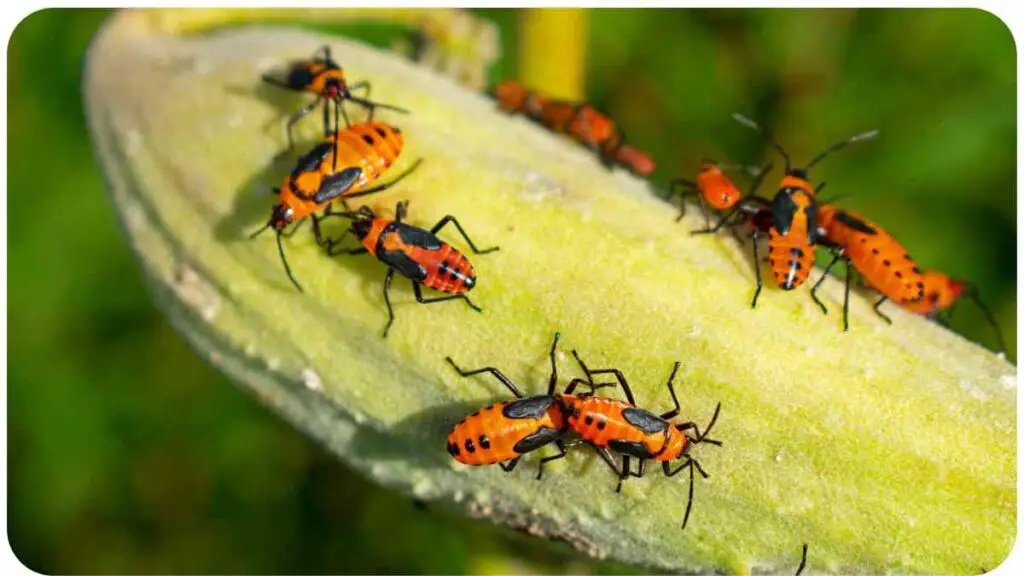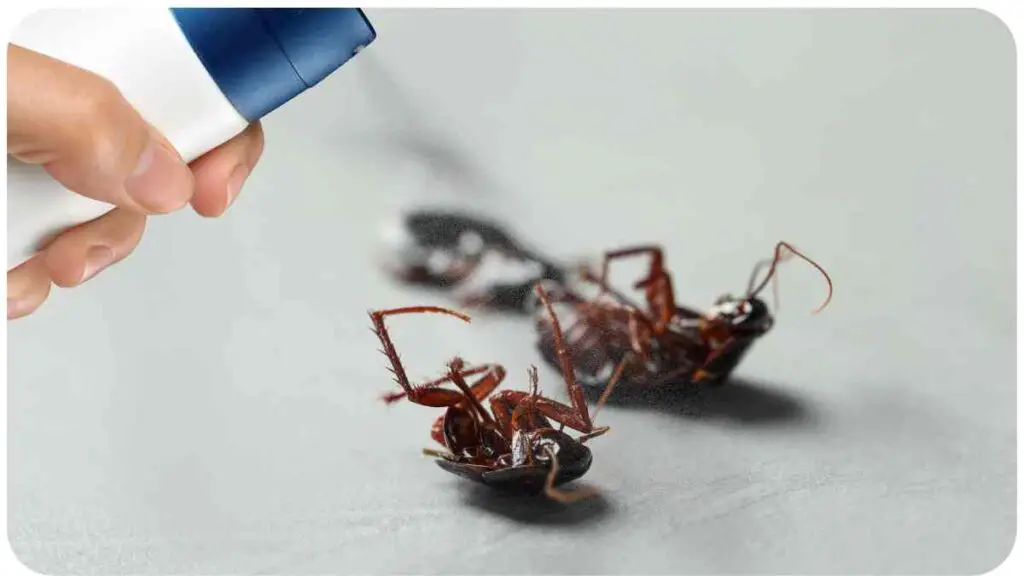Before diving into the nitty-gritty of bug control, let’s acknowledge that at some point, we’ve all encountered those pesky insects that seem to invade our homes uninvited. Whether it’s ants in the pantry, mosquitoes in the bedroom, or bed bugs hiding in the seams of our mattresses, dealing with bug infestations can be a real buzzkill.
This comprehensive guide will provide you with a treasure trove of knowledge on how to stay bug-free when repellents just aren’t cutting it.
| Takeaways |
| 1. Understanding bug habits is crucial for effective control. |
| 2. DIY prevention techniques can help keep bugs at bay. |
| 3. Bug repellents have limitations; consider natural remedies. |
| 4. Professional extermination may be necessary in some cases. |
| 5. Bug-proofing your home is a proactive long-term solution. |
| 6. Businesses should have bug control strategies in place. |
| 7. Tailor bug control methods to specific bug types. |
| 8. Prevention extends beyond your property’s boundaries. |
| 9. Bug control varies by climate; adapt strategies accordingly. |
| 10. Explore additional resources for in-depth bug control insights. |
2. The Buzz About Bug Infestations
You might be wondering, why should you care about bugs in your living space? Well, bug infestations aren’t just an annoyance; they can pose health risks and cause damage to your property. Let me share some of my own experiences in dealing with these little invaders and how I’ve learned to tackle the problem effectively.
Camping enthusiasts, enhance your outdoor comfort with ingenious camping hacks. From DIY solutions to unexpected tips, these strategies ensure a smoother and more enjoyable camping adventure.
3. Understanding Common Bug Culprits

To combat bug infestations, it’s crucial to know your enemy. Different bugs have different habits and preferences. In this section, we’ll take a closer look at the most common bug culprits and what makes them tick.
| Bug Type | Habits and Preferences |
| Ants | Form colonies, attracted to food, leave visible trails |
| Cockroaches | Nocturnal, thrive in warm, humid environments |
| Bed Bugs | Feed on blood, hide in cracks, crevices, and mattresses |
| Mosquitoes | Breed in standing water, attracted to body heat and CO2 |
4. Signs of a Bug Infestation
Spotting the signs of a bug infestation early can save you from a full-blown invasion. Let me share some red flags to watch out for, including the subtle hints that bugs leave behind.
5. DIY Bug Prevention Techniques
Before considering professional help, it’s essential to explore DIY bug prevention techniques. I’ll provide you with practical tips and tricks that you can implement to keep those unwanted guests at bay.
Embarking on a camping trip? Don’t forget the essentials! Refer to the comprehensive camping checklist to guarantee you have all the crucial items for a worry-free outdoor experience.
| Technique | Description |
| Seal Cracks and Gaps | Identify and seal entry points for bugs, such as gaps around windows. |
| Proper Food Storage | Store food in airtight containers to prevent ants and cockroaches. |
| Maintain Cleanliness | Regularly clean and declutter to remove bug hiding spots. |
| Use Natural Repellents | Employ natural deterrents like vinegar and essential oils. |
6. The Limitations of Bug Repellents
Bug repellents are a go-to for many, but they’re not always a one-size-fits-all solution. Let’s delve into the world of repellents and understand their limitations.
7. Natural Remedies for Bug Control

For those who prefer a more eco-friendly approach, natural remedies can be a game-changer. I’ll share some of my favorite DIY bug control recipes and methods that have worked wonders for me.
| Natural Remedy | Ingredients |
| Vinegar Spray | White vinegar, water, and a few drops of dish soap |
| Citrus Peels | Citrus fruit peels (lemon, orange) |
| Diatomaceous Earth | Food-grade diatomaceous earth |
| Essential Oils | Lavender, peppermint, or eucalyptus essential oils |
8. Professional Bug Extermination Services
When all else fails, it might be time to call in the professionals. I’ll share insights into when and why you should consider hiring bug exterminators.
9. Choosing the Right Exterminator
Not all exterminators are created equal. I’ll provide tips on how to choose the right extermination service to ensure the job gets done effectively and ethically.
Explore the wild but stay vigilant! Learn about the most dangerous creatures in the wilderness and discover strategies to protect yourself from potential encounters. Safety is paramount in the great outdoors.
10. Bug-Proofing Your Home
Prevention is the best cure, and bug-proofing your home is a proactive step to keep those critters out. I’ll outline a comprehensive plan to safeguard your living space.
11. Bug Control for Businesses
Bugs can be just as big of a headache for businesses as they are for homes. In this section, I’ll discuss bug control strategies tailored to commercial spaces.
Thirsty in the wilderness? Quench it safely! Discover effective water purification tips for survival. From boiling to filtration, equip yourself with essential knowledge to ensure your water is clean and safe.
12. Dealing with Specific Bug Types
12.1. Ants
Ants are among the most common household bugs. Let’s dig deeper into how to deal with these persistent pests.
12.2. Cockroaches
Cockroaches are notorious for their resilience. I’ll share my experiences in battling these tenacious insects.
12.3. Bed Bugs
Bed bugs can turn your cozy haven into a nightmare. Learn how to detect and eradicate these blood-sucking pests.
When nature calls for shelter, be prepared! Follow this detailed step-by-step guide to constructing a sturdy haven in the woods. Master essential skills for creating a secure shelter in various outdoor scenarios.
12.4. Mosquitoes
Mosquitoes can ruin your outdoor enjoyment. Discover effective strategies for mosquito control.
13. Prevention Beyond Your Property
Bugs don’t always respect boundaries. Here, we’ll explore ways to prevent bug invasions even when you’re away from home.
14. Bug Control in Different Climates
Bug control can vary depending on your geographic location. I’ll provide region-specific tips for battling bugs in different climates.
15. Conclusion
In conclusion, staying bug-free requires a combination of knowledge, proactive measures, and sometimes, professional help. By understanding the habits of common bugs, implementing prevention techniques, and knowing when to seek expert assistance, you can enjoy a bug-free living space. Remember, it’s not just about repelling bugs; it’s about keeping them at bay for good. Happy bug-proofing!
Further Reading
Here are some additional resources for further information on bug control:
- The New York Times Wirecutter – Best Bug Repellent: Discover the top bug repellents recommended by experts.
Short Description: Explore the New York Times Wirecutter’s reviews to find the best bug repellent products currently available. - Forever Bamboo – Bug-Proof Your Backyard: Learn how to make your backyard a bug-free oasis with practical tips and solutions.
Short Description: This blog post from Forever Bamboo provides valuable insights into creating a bug-free outdoor space for relaxation. - The New York Times Wirecutter – Essential Oils as Bug Repellents: Explore the effectiveness of essential oils as bug repellents and their pros and cons.
Short Description: The New York Times Wirecutter examines the use of essential oils as bug repellents and discusses their strengths and limitations.
FAQs
How do bug repellents work?
Bug repellents work by either masking scents that attract bugs or by creating a barrier that insects find difficult to penetrate. They deter bugs from landing on or biting the treated surface.
Are natural bug repellents as effective as chemical ones?
Natural bug repellents can be effective, but their efficacy may vary. Some essential oils and natural ingredients can repel bugs, but they may need to be reapplied more frequently than chemical repellents.
What are some common bug attractants?
Common bug attractants include carbon dioxide (CO2) emitted by humans and animals, body heat, sweat, and scents from perfumes, lotions, and food.
How can I protect my outdoor space from bugs?
To bug-proof your outdoor space, you can use citronella candles, install screens or netting, remove standing water, and choose bug-resistant plants for landscaping.
When should I seek professional bug control services?
You should consider professional bug control services when DIY methods prove ineffective, and the bug infestation poses health risks or causes significant property damage. Professionals can assess the situation and provide targeted solutions.

Hi! I’m Hellen James, and I am the founder of Unified Survival. I have a deep passion for the wilderness and everything that goes along with it. I’ve been hiking since I was a child, and I grew up camping in state parks all over the country. But it wasn’t until recently that I learned how to survive in the wilderness.

